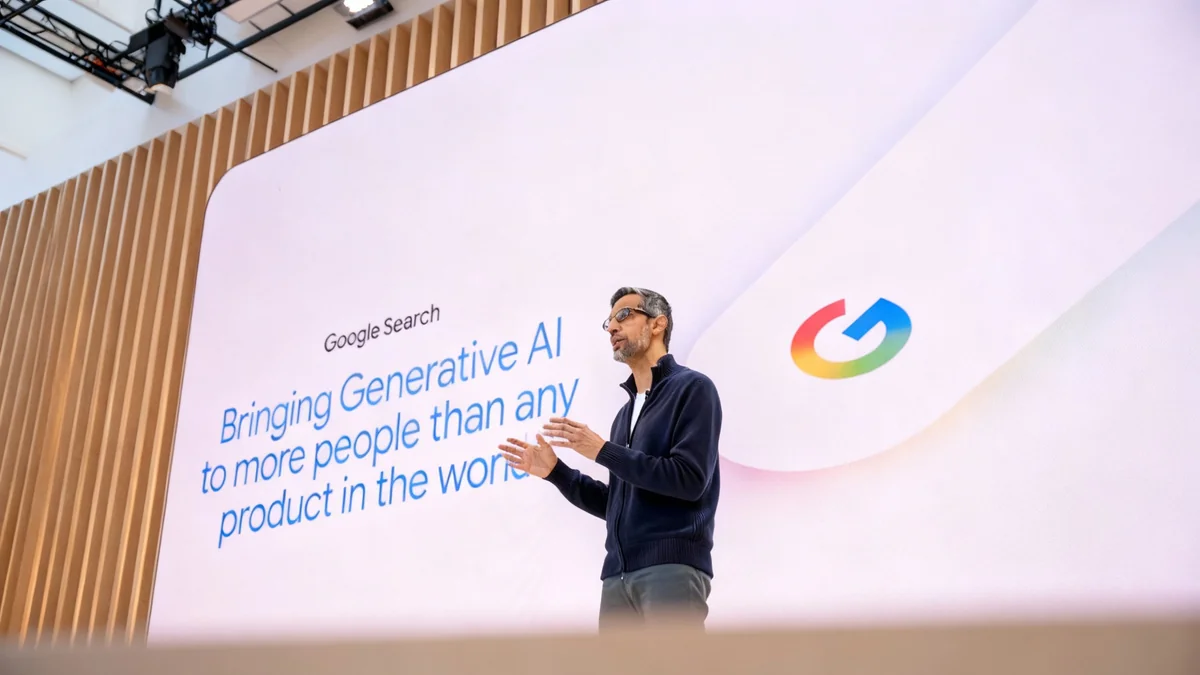Advanced Micro Devices (AMD) and OpenAI have entered into a major partnership valued at multiple billions of dollars. The agreement positions AMD to supply OpenAI with specialized processors for its artificial intelligence data centers, marking a significant challenge to Nvidia's current market leadership in AI hardware.
Under the agreement, OpenAI has committed to purchasing 6 gigawatts of AMD's AI chips. This strategic move is expected to generate tens of billions of dollars in revenue for AMD over the next five years, according to statements from the company.
Key Takeaways
- OpenAI and AMD have formed a multibillion-dollar partnership for AI data center hardware.
- OpenAI will purchase 6 gigawatts of AMD processors, starting with the MI450 chip in the coming year.
- AMD CEO Lisa Su projects the deal will result in tens of billions of dollars in new revenue over five years.
- The collaboration represents one of the most direct challenges to Nvidia's dominance in the AI chip market.
Details of the Strategic Agreement
The partnership between OpenAI, the creator of ChatGPT, and chip designer AMD is structured to supply the immense computational power required for large-scale AI models. The core of the deal involves a substantial purchase commitment from OpenAI for 6 gigawatts of power worth of AMD's advanced processors.
This purchase will begin with AMD's upcoming MI450 chip, scheduled for release next year. OpenAI plans to acquire these chips through two primary channels: either by purchasing them directly from AMD or by utilizing them through its cloud computing partners who integrate AMD hardware into their infrastructure.
This dual-procurement strategy gives OpenAI flexibility in how it scales its operations, ensuring a steady supply of the critical hardware needed to train and run its increasingly complex AI systems. The scale of the commitment underscores the massive energy and processing requirements of modern AI.
Why Gigawatts Matter for AI
In the context of data centers, power consumption is a direct proxy for computing capacity. A commitment measured in gigawatts signifies an enormous investment in hardware. For reference, one gigawatt can power hundreds of thousands of homes. Committing to 6 gigawatts indicates the deployment of a vast number of high-performance chips needed for training and operating AI models like ChatGPT.
Financial Impact and Market Positioning
For AMD, this partnership is a landmark financial event. The company has been working to increase its footprint in the lucrative AI accelerator market, a sector that has been overwhelmingly controlled by its rival, Nvidia.
A Revenue Windfall for AMD
In an interview discussing the deal, AMD Chief Executive Officer Lisa Su provided insight into the financial scope of the agreement. She projected a significant impact on the company's future earnings.
The deal will result in tens of billions of dollars in new revenue for the chip company over the next half-decade.
This long-term revenue stream provides AMD with a stable foundation to further invest in research and development for its AI chip portfolio. It also serves as a powerful endorsement of its technology from one of the world's leading AI research and deployment companies.
Projected Five-Year Growth
The revenue projection of "tens of billions" over five years suggests an average annual income of several billion dollars from this single partnership. This would represent a substantial increase in AMD's data center revenue and solidify its position as a top-tier supplier in the AI hardware space.
Challenging an Industry Leader
The AI chip market has been characterized by the dominance of one major player: Nvidia. The company's CUDA software platform and high-performance GPUs became the industry standard for training AI models over the past decade, giving it a commanding market share estimated to be over 80%.
The AMD-OpenAI partnership is one of the most significant strategic moves to diversify the AI hardware supply chain. By securing a large-scale commitment from a prominent AI developer, AMD gains critical validation and a substantial market foothold. This introduces a new level of competition that could have wide-ranging effects on the industry.
Implications for the Broader AI Ecosystem
Increased competition in the AI hardware market could lead to several important changes:
- Price and Availability: With a viable high-performance alternative to Nvidia, prices for AI chips could become more competitive, and supply chain bottlenecks might ease.
- Innovation: The direct rivalry between AMD and Nvidia is likely to accelerate the pace of innovation, as both companies compete to deliver more powerful and efficient processors.
- Reduced Dependency: AI companies have been seeking to reduce their reliance on a single hardware supplier. This deal provides a clear path for diversification, a trend other major tech firms may follow.
According to industry analysts, this agreement could signal the beginning of a multi-polar market for AI accelerators, moving away from the near-monopoly that has defined it for years. The success of this collaboration will be closely watched by every major player in the technology sector, from cloud providers to other AI model developers.





